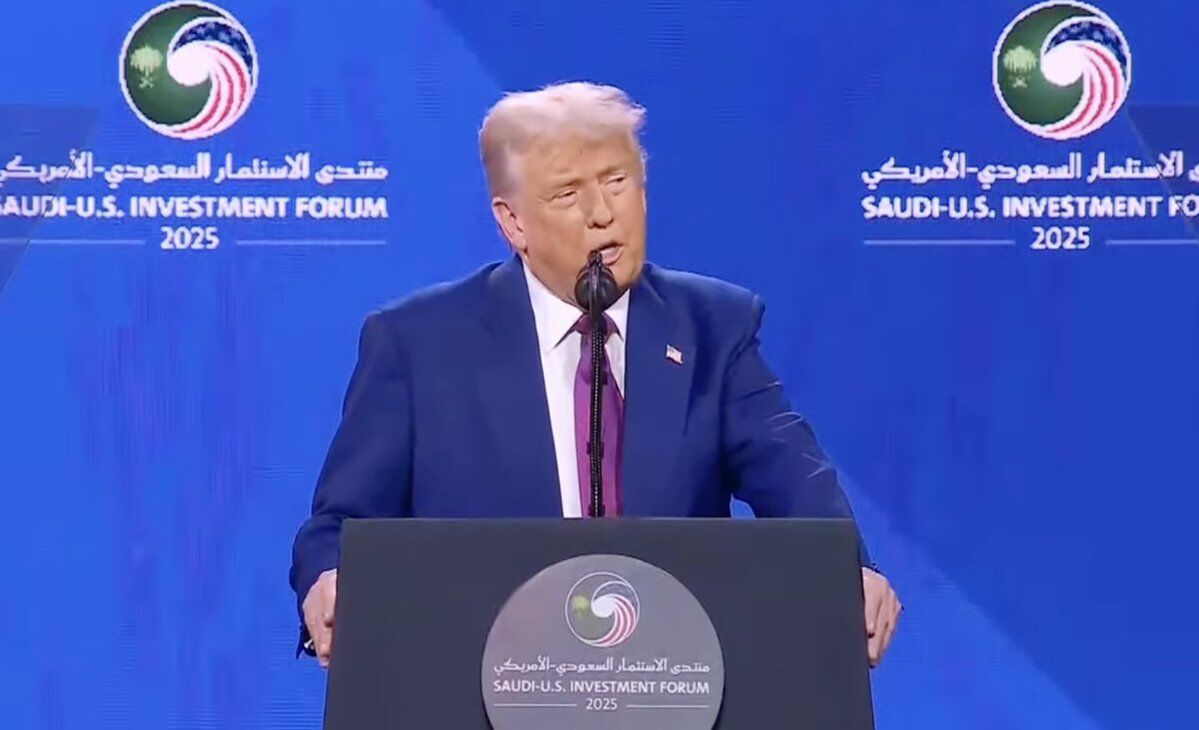Trump in Riyadh: Spectacle Over Substance in a Changing Middle East

By Professor Vince Hooper, SPJ Global, Dubai.
U.S. President Donald Trump’s reappearance on the world stage—this time at the Future Investment Initiative (FII) in Riyadh—was marked by a familiar performance: brash posturing, political theatrics, and another recycled attack on the Islamic Republic of Iran. His promise to ensure Iran “never acquires a nuclear weapon,” and renewed threats of “maximum pressure,” reveal a disturbing return to the language of confrontation over cooperation.
But Trump’s Riyadh speech did more than recycle old grievances. It exposed the deep disconnect between Washington’s outdated geopolitical assumptions and the new regional dynamics unfolding across West Asia and MENA.
Trump’s Riyadh Rhetoric: Out of Step with Reality
Trump’s speech, delivered at a global investment forum, paradoxically focused on threat inflation and regional antagonism rather than the economic themes that the event itself was meant to showcase. In praising Saudi Arabia as a “magnificent country” while singling out Iran as a destabilizing force, Trump repeated the simplistic binary of “good allies” versus “bad actors.” This Cold War-style worldview is increasingly irrelevant in a region embracing complexity, multilateralism, and dialogue.
In contrast to this divisive rhetoric, Iran has consistently expressed its openness to regional cooperation, including through the Hormuz Peace Endeavour (HOPE)—a Tehran-initiated framework for collective security. While Iran seeks diplomatic solutions, Trump’s brand of zero-sum politics fuels polarization.
Selective Amnesia on Nuclear Issues
Trump’s vow to block Iran from acquiring nuclear weapons omits key facts. Iran is a signatory to the Non-Proliferation Treaty (NPT) and has upheld its obligations. The Islamic Republic’s Supreme Leader has issued a binding fatwa against the development or use of nuclear arms—something that sets Iran apart from others in the region.
Furthermore, the Joint Comprehensive Plan of Action (JCPOA)—an international agreement designed to guarantee the peaceful nature of Iran’s nuclear program—was not violated by Iran, but by Trump himself in 2018 when he unilaterally withdrew the U.S. from the deal. That act of diplomatic sabotage not only damaged U.S. credibility but also undermined years of multilateral negotiation.
Meanwhile, other regional powers with opaque nuclear ambitions are never subject to the same scrutiny or condemnation. Why the double standard?
The Human Cost of “Maximum Pressure”
Behind Trump’s catchphrases lie real consequences. His so-called “maximum pressure” campaign amounted to collective punishment. Sanctions imposed during his presidency curtailed Iran’s access to vital medicines, food, and humanitarian goods. It hurt ordinary Iranians, not decision-makers.
Yet these coercive policies did not bring the U.S. closer to its goals. They deepened mistrust, fostered resistance, and ironically, bolstered domestic resolve within Iran to pursue greater self-reliance.
A Region Moving Forward, Without Trump’s Approval
Perhaps most revealing is how Trump’s speech ignored recent regional developments—particularly the Iran–Saudi détente brokered by China in 2023. In a rare moment of pragmatic diplomacy, two major regional powers agreed to resume ties, de-escalate tensions, and prioritize mutual interests over external interference. This historic development directly counters the narrative Trump tried to revive in Riyadh.
Moreover, the economic and diplomatic reorientation of the region—towards China, Russia, and a multipolar world—makes Trump’s attempts to reassert American primacy seem tone-deaf. Countries in West Asia are no longer beholden to Washington’s binary dictates; they are increasingly engaging on their own terms.
A Campaign Speech Disguised as Foreign Policy
One must also recognize that Trump’s Riyadh address was less a coherent policy vision and more a performative gesture aimed at energizing his U.S. voter base. The real audience may not have been Saudi investors or Gulf leaders—but American voters nostalgic for “America First” nationalism dressed up as diplomacy.
His appearance was, in essence, an export of domestic politics to foreign soil, using the Iranian people as a rhetorical punching bag.
Conclusion: Time to Bury the Politics of Enmity
Trump’s Riyadh remarks, while headline-grabbing, offer nothing new for a region that is looking beyond the politics of enmity. Iran’s foreign policy is guided not by impulsive spectacle, but by principles of sovereignty, Islamic ethics, and regional integration.
Rather than clinging to the ghosts of failed policies, the world—especially West Asia and MENA—needs genuine engagement, economic cooperation, and a departure from outdated narratives. Iran remains ready to engage—on equal terms—with all nations seeking peace, security, and shared prosperity.
It is time to turn the page.





